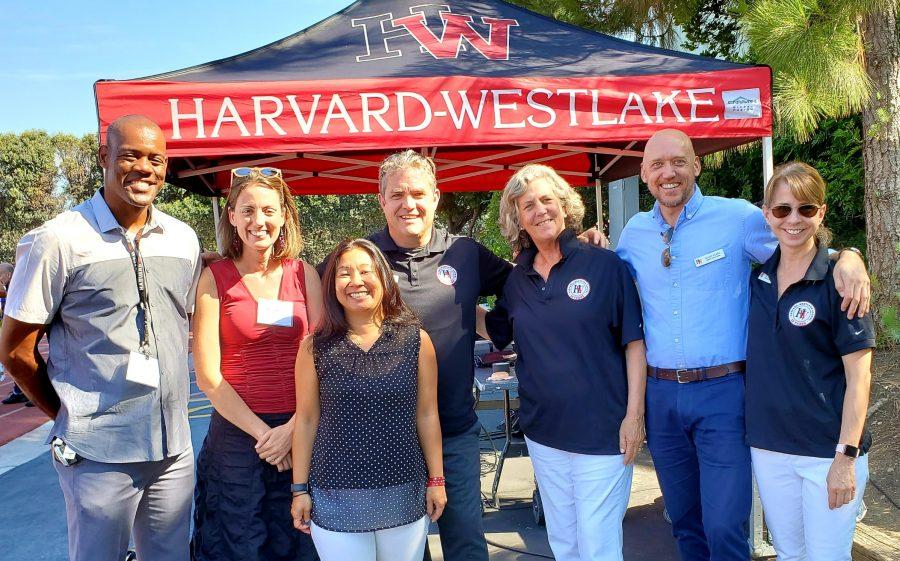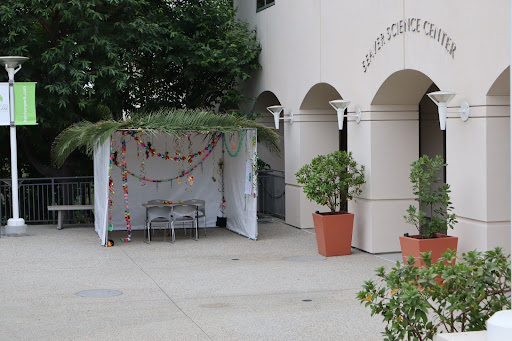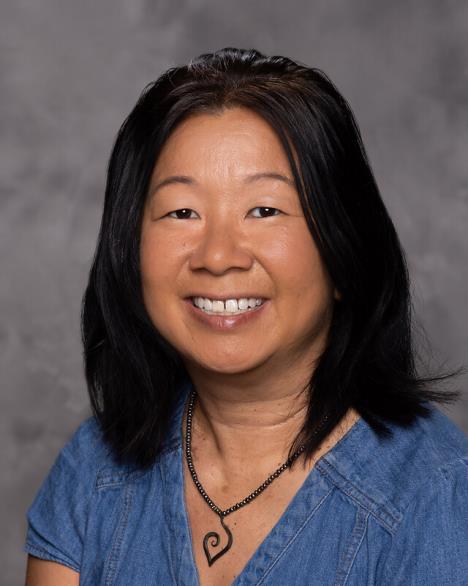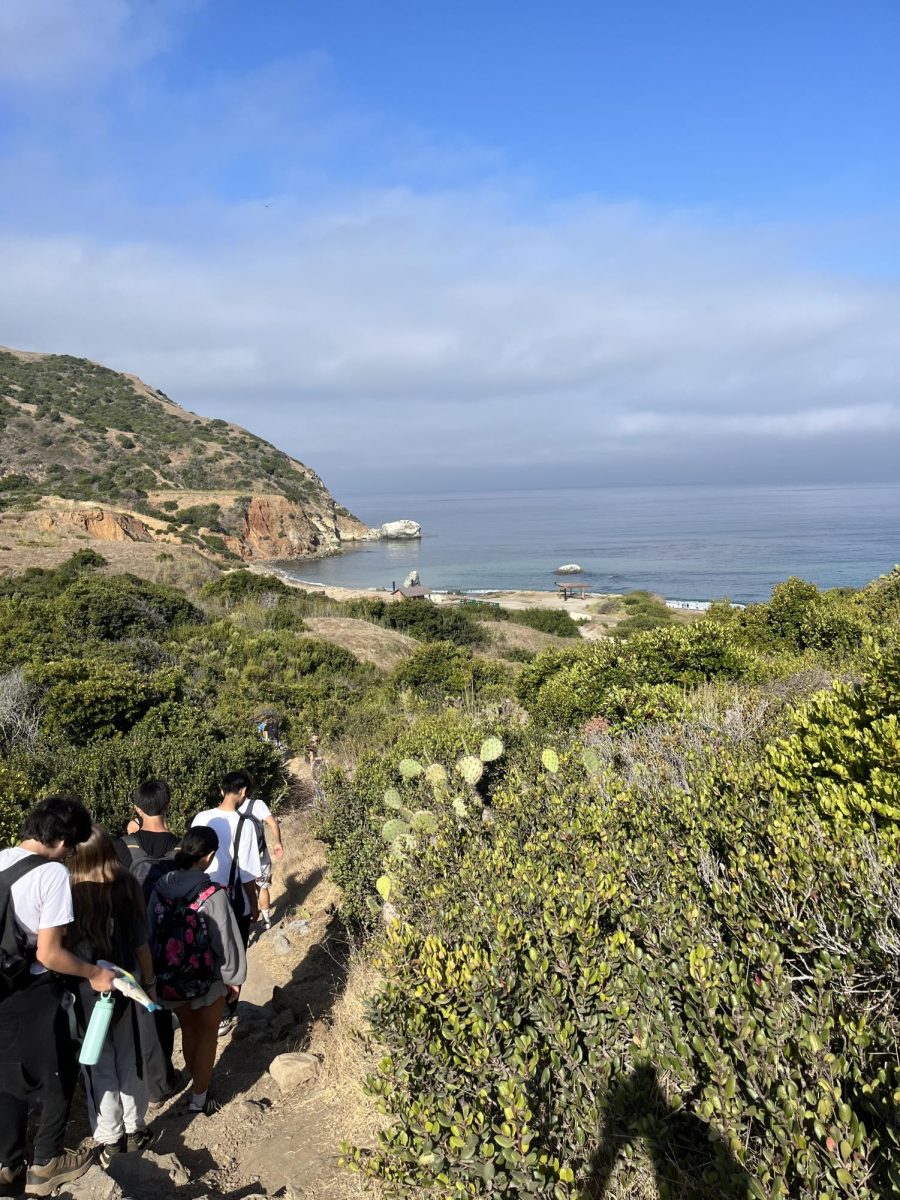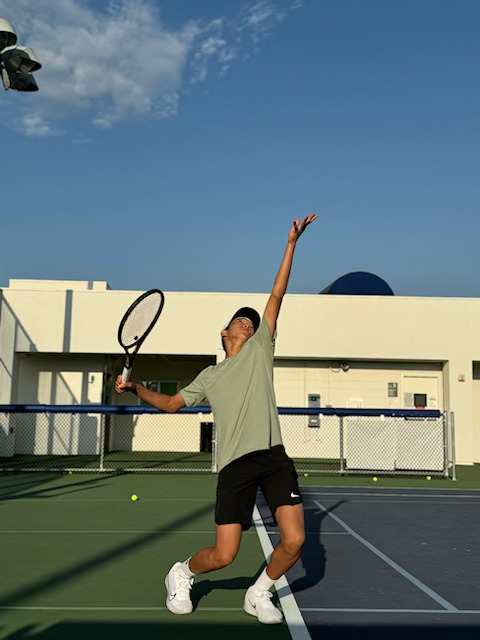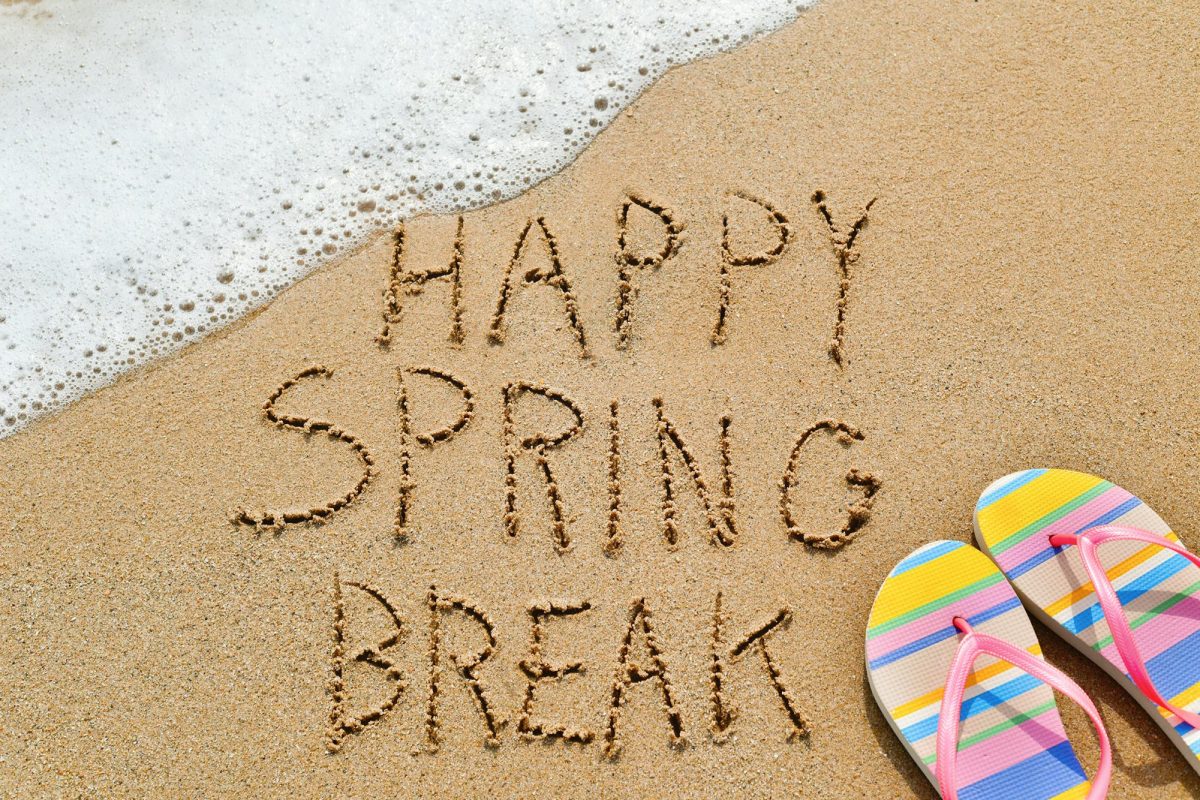With so many things about virtual learning being new and different, not much light has been shed onto what the process has been like for Middle School students’ biggest support system: the Middle School deans.
When asked to describe the job of a Middle School dean, Kate Benton, Chair of the Middle School deans and Ninth Grade Dean, said being a Middle School dean means “being a liaison between teachers and parents and students and being the helpers during the day for students.”
“I like to say that we’re school mums and dads – school parents,” Ninth Grade Dean Matthew Cutler said. “You know, that’s the thing I like most. We mostly do the nurturing and supportive part, and occasionally have to do some discipline – just like parents have to.”
But much of how the Middle School deans would do their job was left uncertain after Harvard-Westlake (HW) President and Head of School Rick Commons sent an email to all students, parents, faculty and staff on March 11 announcing that HW would close its campuses and resume school virtually the following Monday.
The email shocked students and teachers alike, with students yelling on the Commons and students running out of P.E. classes. But even the Middle School deans were caught off guard.
“We were all in a deans’ meeting at the time, and so we knew that the letter was going to be coming out, but we didn’t know exactly when,” Benton said. “And then suddenly we heard screaming as if a plane just dropped 500 million dollars on the campus. And then what everyone thought to be a month-long spring break turned into what we understand today.”
And the Middle School deans had to adapt to Zoom and all that virtual learning entailed alongside students.
“The transition was very hard because [Betsy] Ilg and I have been deans for 14 years and we’ve always done things a certain way,” Eighth Grade Dean Colby Plath said. “We know what kind of care students need from year to year, so we have a real good sense of what students need as well as how to provide it. But the game just completely changed when campus was closed.”
Cutler mentioned just how important informal communication is to the deans and how it’s affected the ways in which deans do their jobs.
“It was hard because so much of our job as deans is informal,” Cutler said. “It’s meeting kids in classrooms, meeting in corridors, and meeting kids in the lounge, and us just having those informal meetings. But what happened when we went online was that informal conversations ceased immediately and all of a sudden, any time you wanted to consult with and connect with kids, there had to be a process involved – there had to be an email conversation schedule a meeting, make a Zoom link, send the Zoom link – so it became much more difficult.”
Ilg noted that the multi-month long experience with virtual learning has shown the deans what students experience day-to-day.
“Though it’s definitely been challenging, it’s also been exciting in a way because it put us in the seats of the students,” Ilg said. “Since everything changed so quickly, we had to become the learners, and really became students ourselves, as we had to learn so much foreign and new information.”
When asked whether being a dean is more difficult in this virtual-era, Ninth Grade Dean Karen Fukushima said the job is more difficult because it’s harder to communicate.
“I think it’s definitely more difficult,” Fukushima said. “There’s positives and negatives, one positive being I get to be at home. But it does feel like it’s harder. I wouldn’t say there’s more work, it’s just harder to communicate with students, parents, and teachers because there’s so much back-and-forth.”
Benton said while she believes the experience of virtual learning will affect how deans work in future years, she believes it will be for better rather than for worse.
“I believe it will affect how the deans operate in future years,” Benton said. “Over the past few months, what we’ve had to do is be really organized about what the information is that we need to share. I think it’s made us look deeply at what we communicate, when we communicate it, and how. So I think in the long run, it’s going to make us more efficient.”
Seventh grade Dean Jon Carroll says the process of welcoming 200 new students to the HW community each year is both fun and enjoyable to go through every year.
“It’s fun because you soak up their energy, and there’s definitely a lot of it,” Carroll said. “Many of us who are adults and get into education do it because we like that connection with students and just enjoy being a part of it. So to not have that, is a loss. I thoroughly enjoy every time the seventh graders are enjoying that orientation process that starts with the Welcome Barbecue and kind of ends with Retreat. So I really enjoy all of that and that’s the unique fun of being a seventh-grade dean as you get to go through that welcome process every year.”
But the shift to online learning has made this process more difficult according to Seventh Grade Dean Emily Reola.
“It’s definitely more challenging, but I’m really grateful for the energy of seventh graders,” Reola said. “This year we started these Zoom lunches and Zoom office hours and it’s really great because the seventh graders come in and act just like they would in the lounge. It’s such a nice thing to see and I’m so grateful for those little moments that you can find and connect with the students. But like I said earlier, it’s more challenging because this year, we have to create those moments. In a normal year, students would naturally bond and be together in the lounge, but this year we have to create those spaces for the students to have those moments.”
The seventh grade deans don’t think the Class of 2026 will be affected too much in the long-term by their time in virtual learning.
“I think they’ll always share that experience and talk about it, but I feel like when they’re back on campus, they’re just going to jump back into school on campus smoothly,” Reola said. “I think they’re going to make up for the lost time, I really do. While I know they’re not making the connections in the same way that they would have at the beginning of the school year in person, I think most of them are definitely making progress towards that.”
Carroll theorizes that the time HW students have spent virtually may even promote greater participation in future school activities.
“I think it will also be interesting to see how the seventh graders, and really the whole school, will make up for the lost time,” Carroll said. “Usually there’s a bit of a decrease in the amount of students that go to eighth grade retreat, so I think it will be interesting to see if that’s different this year. I have a feeling that students, especially the seventh graders, will be really hungry to get those in person opportunities that really define the Harvard-Westlake experience – like homecoming, retreat, and more.”
The ninth grade dean team also goes through a welcome process, where they welcome close to 100 new students every year.
“It can be overwhelming in many respects,” Cutler said. “It’s a real struggle because you want to get to know the new students and help them as they transition, but you also want to maintain your support of the returning students.”
And that difficulty hasn’t been made any easier in a year without in-person gatherings.
“
It’s definitely difficult because a lot of the opportunities we normally have – like bowling parties, luncheons, fast start, orientation, and retreat – that help break down a lot of barriers and help build camaraderie either can’t be held this year or are being held online, which is really only giving the new ninth graders a shell of what they’d usually get,” Fukushima said. “But though we’ve lost certain things, there’s also many new opportunities – like Flex Days and other events.”
When asked whether she believes that the dynamic within the Class of 2024 will be different than grades that came before it due to virtual learning, Benton responded yes.
“I think that what’s inevitably going to happen is you’re all going to learn to be a lot more self-sufficient in terms of figuring out what you need and how to get it, and handling problems on your own” Benton said.
But while things seem dismal at the current moment, Reola expressed a message of hope.
“Being in the thick of all of this, it can be draining,” Reola said. “It can be exhausting. It’s funny how exhausted you feel just from looking at a computer screen on it. But I’m trying to stay optimistic and I really think students should try too as well, even though certain things may feel hopeless sometimes. I know this is going to end, we’re going to go back to campus at some point, and I really believe we will be stronger because of this experience.”
When asked if she had a message for students hesitating to reach out to their deans, Ilg expressed that the deans want to talk to students and want to help.
“Just reach out. What’s the worst that can happen honestly?” Ilg said. “I know I can speak for the whole Middle School dean team when I say I would love more opportunities to get to know students. So just reach out – we’re here for you and we’re ready to be there for you in any way we can!”
